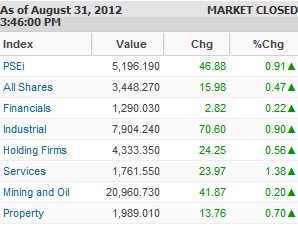
In a disclosure to the Philippine Stock Exchange, EWB said the offering of long-term negotiable certificates of deposits (LTNCD) will have a minimum tenor of five years plus one day and a maximum of five years plus six months from issue.
Asked about the rationale for the offering, EWB president Antonio Moncupa Jr. said the bank was “just trying to have a better liability structure and better matching of assets and liabilities. “This is also in anticipation of higher loan growth as we have expanded our corporate and consumer lending organizations,” Moncupa added in a text message.
“Because the bank was very liquid and have one year to issue the LTNCDs, we most likely will have it issued in the fourth quarter and even next year,” Moncupa said, when asked about the proposed timing for the offering.
EWB is offering LTNCDs for the first time. However, it had inherited from AIG Philam Savings Bank – which it acquired in 2009–P1.6 billion worth of LTNCDs issued in 2007. Moncupa said the LTNCDs assumed by EWB from AIG Philam Savings had matured a couple of weeks ago.
LTNCDs are time deposits but have longer maturity and carry higher yields. While they cannot be pre-terminated unlike regular time deposits, they are negotiable so they can be sold in the secondary market to other investors. By using the LTNCD structure, which is tax-free because of the long tenor, banks can offer better yields to clients.
EWB also recently received approval from the BSP to operate as a universal bank, thereby gaining authority to expand its businesses to non-allied undertakings. But even with this license, the bank has said it still intends to focus on serving the retail and corporate middle-market sectors.
Last May, EWB debuted on the PSE, the first bank to do so in eight years.
The bank, which started operations in 1994, is a subsidiary of the Filinvest Development Corp., the publicly listed holding company of the Filinvest Group that evolved from a consumer business founded by Andrew L. Gotianun, Sr. in 1955. FDC has business interests in real estate, banking, sugar, hospitality and tourism and power-generation.


